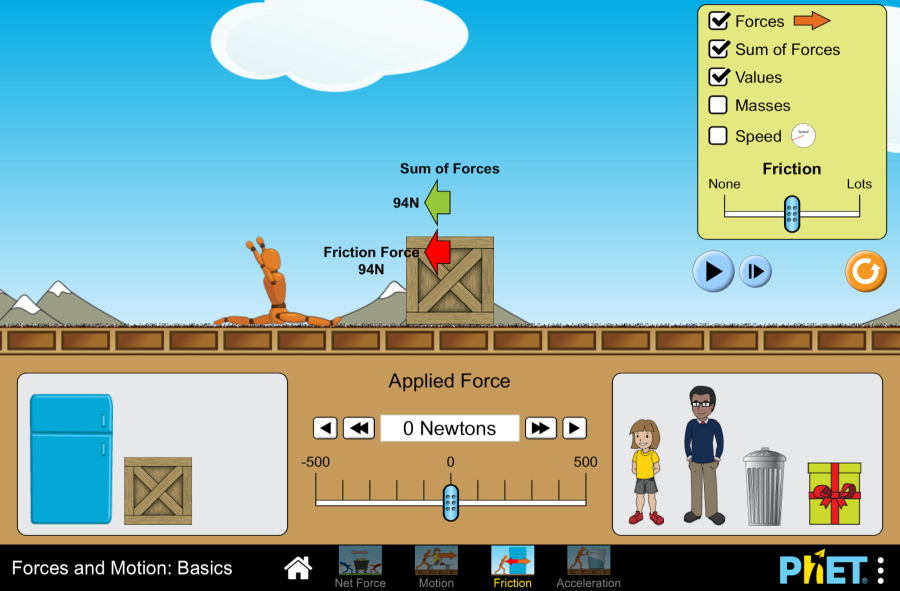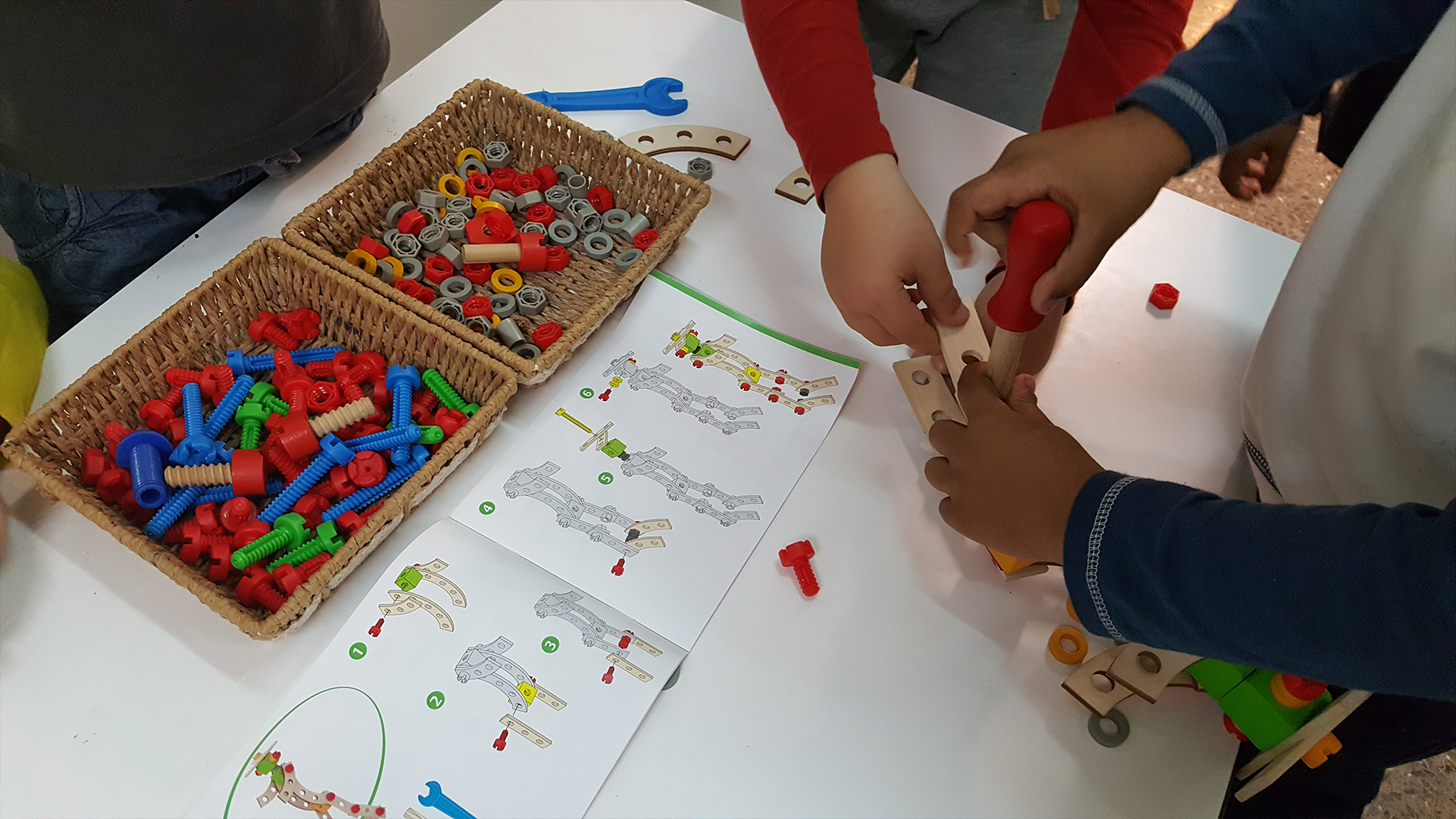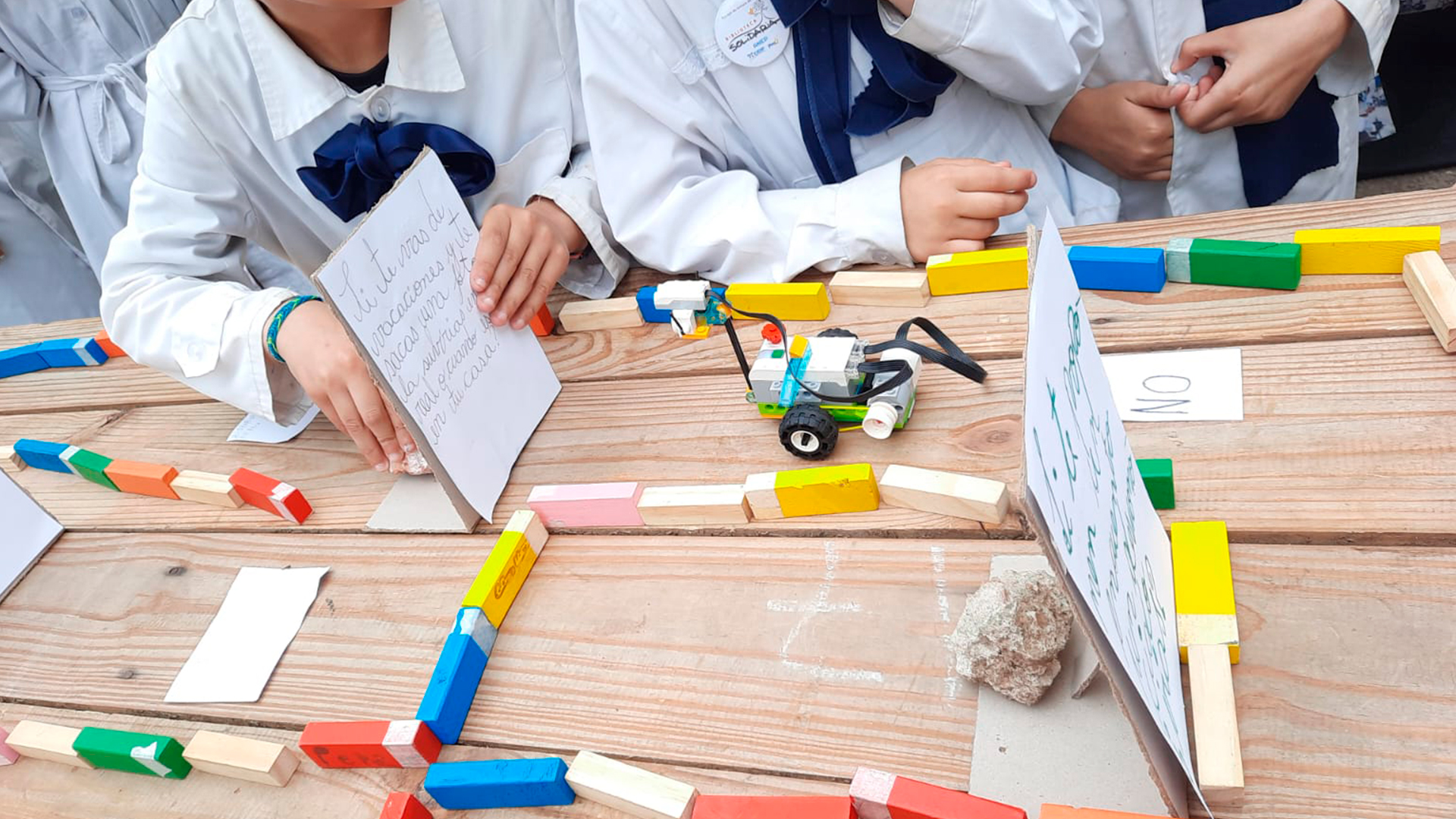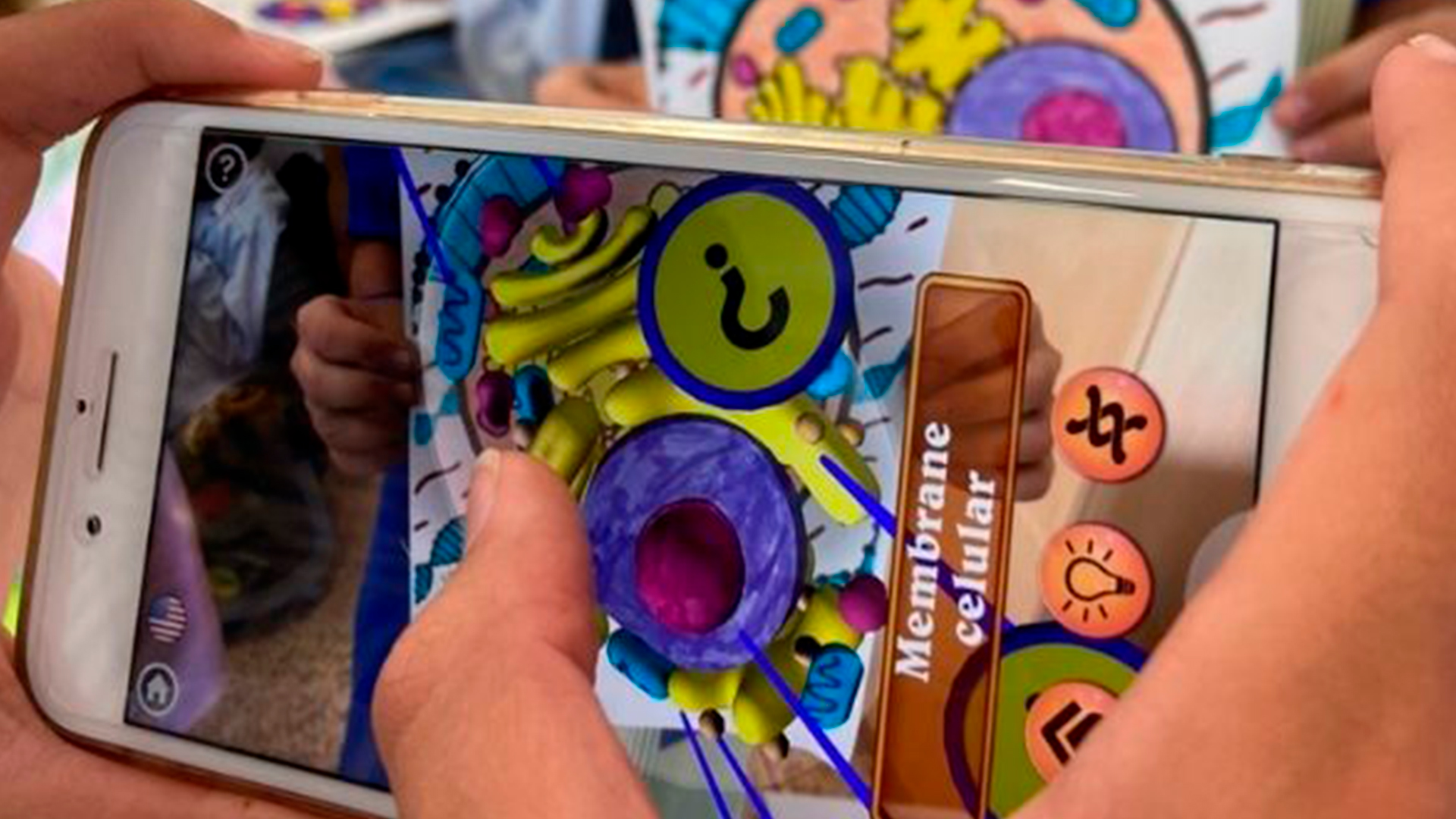Mobile learning
Classroom Experience
Learning through play using simulation platforms
Liceo nacional Andres Bello, San Cristóbal, Táchira. Venezuela. Show map
By using the PhEt platform for simulation of motion with mobile devices, students explored, learned, played, and incorporated knowledge of Physics.
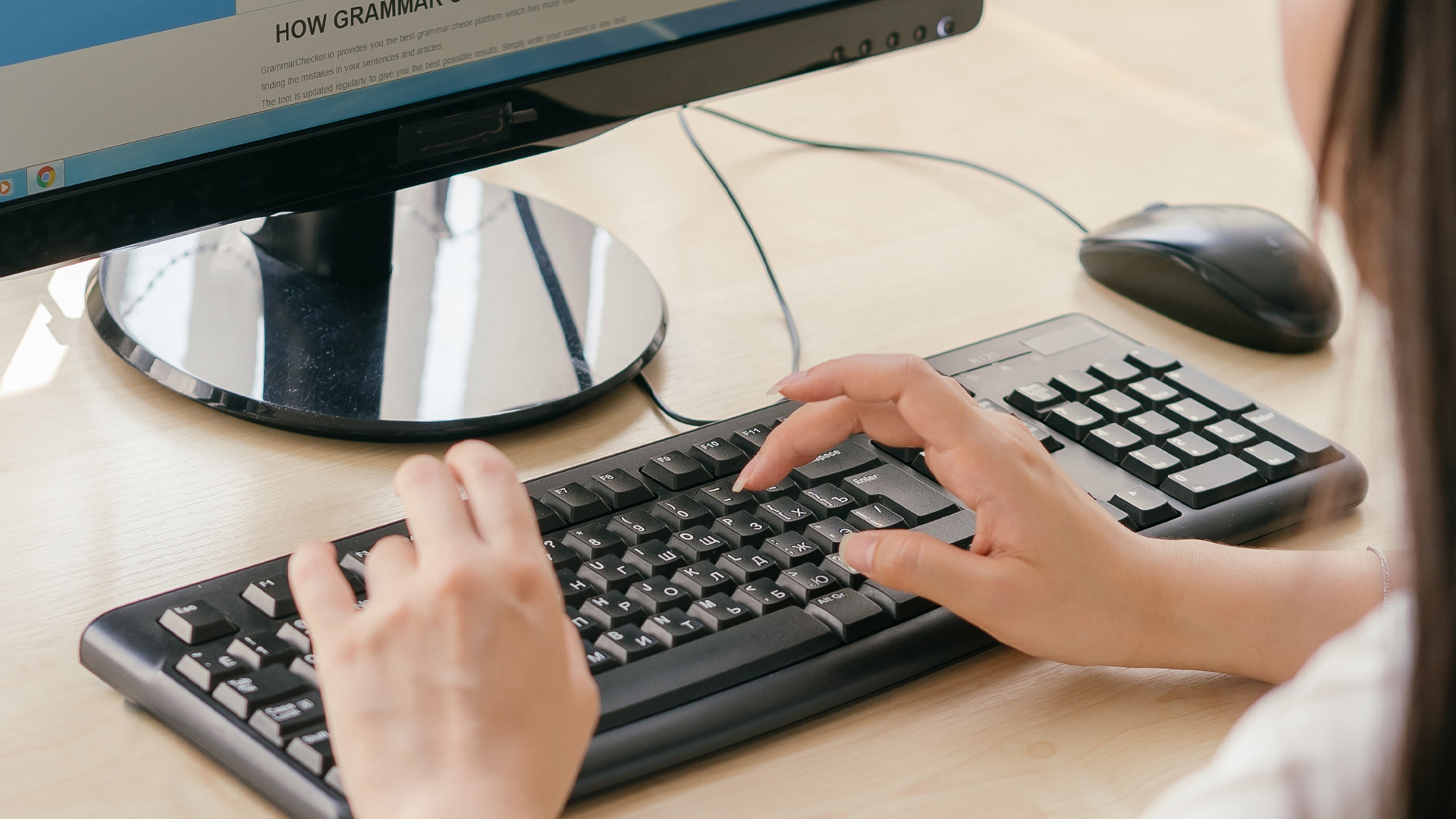
Context
The project grew out of the pandemic context. Students, due to the social and preventive isolation, were at home, with few devices and poor Internet access. The teacher discovered the PhEt platform, which needs no mobile data once downloaded and can be used for the simulation of motion in Physics. Today, he continues using the platform adapting it to the current needs.
Highlights...
The use of mobile devices with a simulation platform that doesn't require connectivity.
Specific learning with prior knowledge and digital simulation.
Collaborative work in small groups and socialization as a whole group.
Creative final activity to transfer the learnings following a given task.
Objectives
Incorporate knowledge of Physics related to motion
Assess how the initial launch conditions (height, speed, angle) affect the trajectory of a projectile and its relation with the triple jump's dynamics.
Develop digital skills
Using mobile devices with educational platforms is motivating, awakens students' interest and facilitates learning.
Encourage teamwork and sharing of knowledge
Debating, discussing, and reflecting in teams and as a whole group develops skills of communication, creativity and cognitive insight.
Didactic sequence
1
![]()
Pre-lab
Students work with their prior knowledge to relate concepts of Physics to the reality of their context, experimenting with the game "Jump the River", available on the PhEt platform.
2
![]()
Virtual Lab
Students explore the Phet platform, specifically the parabolic motion simulation in the "learn by playing" section, with no instructions from the teacher. Once they finish, they share their findings through guided questions.
3
![]()
Virtual Lab Exercises
Exercises meant to predict how by varying the initial launch conditions, the projectile's trajectory is modified, and to establish the relation between the launch of projectiles and the triple jump's dynamics.
4
![]()
Post Lab
After the teams share, debate, discuss and reflect on the exercises they carried out, students are given an individual summative assessment.
5
![]()
Generalization of knowledge
Based on the case of the Venezuelan athlete Yulimar Rojas' olympic record in the triple jump at the Tokyo 2020 Olympics, students are proposed to reflect about her jump parameters and how they influence its trajectory. In this way they can make a conscious and thoughtful individual recommendation to this olympic athlete on how to achieve the best jump and break her own record.
Assessment and conclusions
Successes
Incorporation of concrete knowledge. Students could see, and not just imagine in the abstract , what was happening with the simulation.
Learn to learn. Students reach conclusions that derive from the reflections and interchanges made during the exploration of the digital simulation, and that are in turn validated by the teacher.
Teamwork fosters communication and organization skills, and in turn, narrows the digital divide.
Things to improve
Don't use the simulation from the beginning.
Extend the time for students to make their final reflections.
Students are given a numerical mark that is divided into two parts: the evaluatin of all the exercises (first part); the activity called "Generalization of knowledge" (second part).
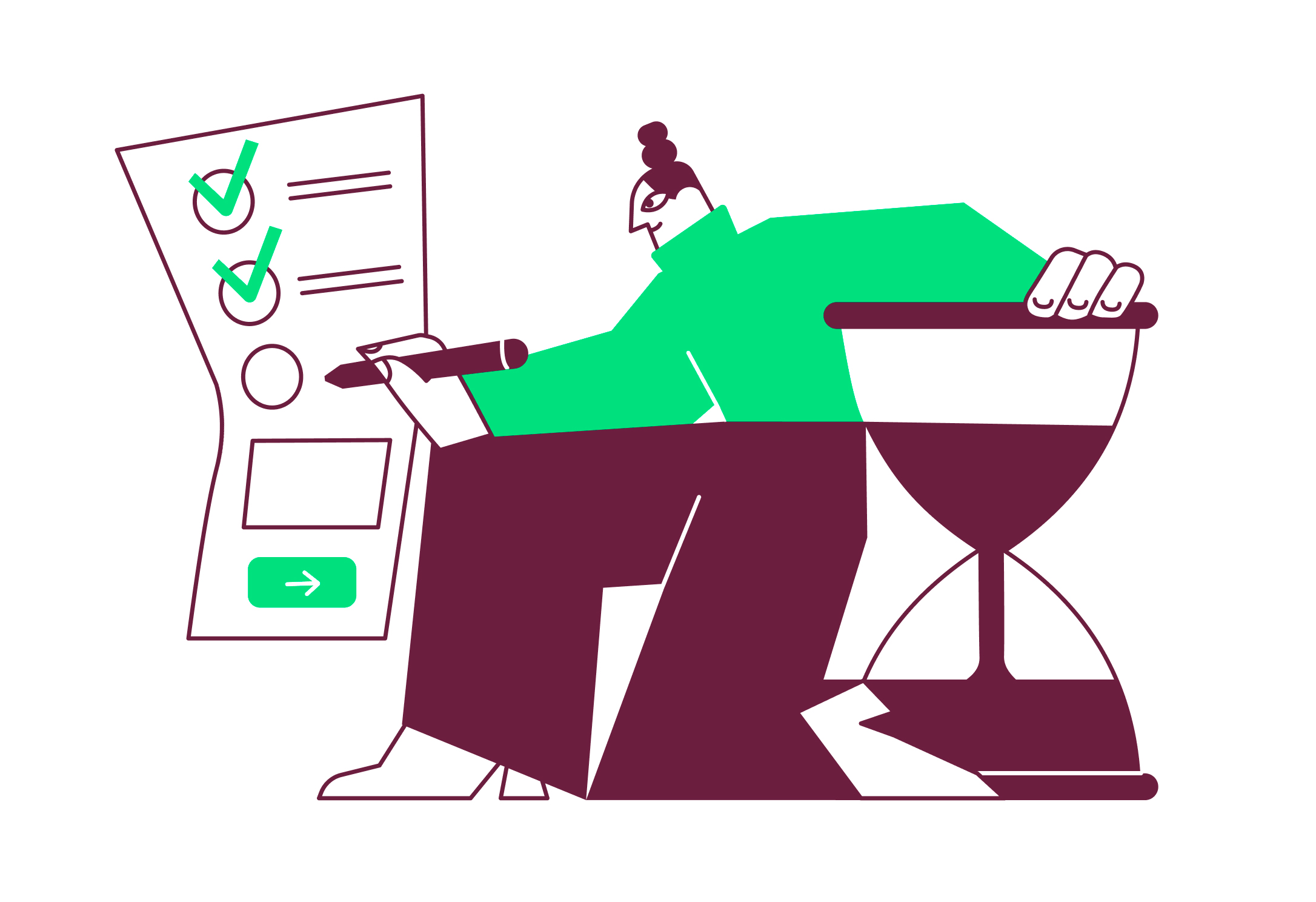
Take this experience to your classroom
Tips to adapt the experience to your classroom
1
Contextualize
Customize the activities according to the country and students involved.
2
Mobile learning
Avoid rejecting the use of mobile devices in the classroom, and rather take it as an educational tool with previous agreements.
3
Teachers' exploration
Get to know and play with the simulation platforms before using them with the students.

